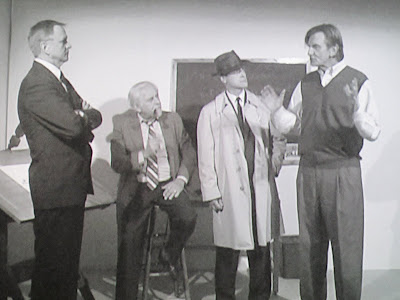Mildred C. at Hsi Lai Temple, Hacienda Heights, California.
From the sacred to the science fiction, my parents and I did a great deal of traveling today.
We started the day at Hsi Lai Temple in Hacienda Heights, California, enjoying the last day the temple celebrated the Chinese New Year. Both my parents enjoyed the visit and had many questions about Buddhism as we drove home on Interstate 610.
As night approached, my mother, daughter and I headed south on Interstate 405 to Dana Point to see a screening of “Plans 1 to 8 From Outer Space.”I played a character in this 66 minute movie, which was a take-off of the early 1950s science fiction movies.
Dana Smith --- author, set designer, actor, sound man, costume designer, chief bottle washer, director, editor and a dozen other positions --- is an inspiration for anyone who has a dream. He began writing Plans 1 to 8 From Outer Space” over ten years ago and by sheer determination and creative energy he was able to produce a full length science fiction movie.
To get a sense of Dana’s humor, and some movie clips, visit his website at: http://www.inconsequentialfilms.com/Default.aspx#
Absalom C. enjoying some of the statues at Hsi Lai Temple.
Hammering the gong for good luck in the new year.
Mildred C. and statue of Master Hsing Yun.
Newspaper advertisment for movie.
Dana Smith: the genius and driving force behind
"Plans 1 to 8 From Outer Space"



















































